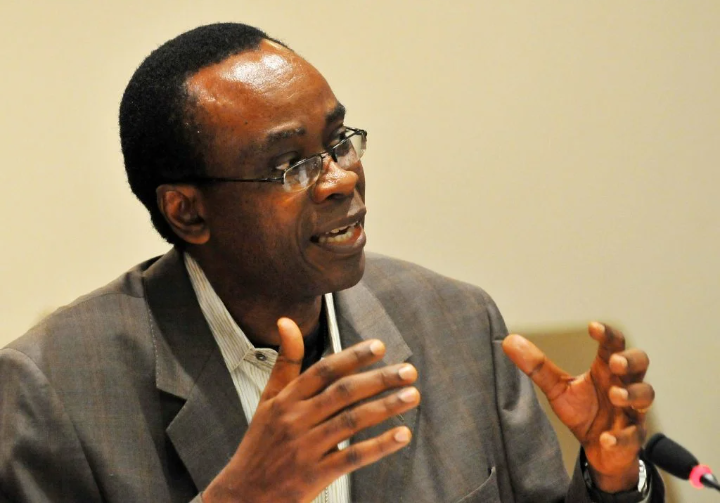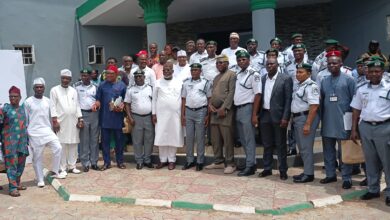
By Edu Abade
Foremost group of environmental activists, the Health of Mother Earth Foundation (HOMEF) has canvassed an immediate end to gas flares, declaration of a national environmental emergency and conduct of a national ecological audit, as well as establishment of a management plan in the country.
The group also recommended immediate detoxification of the Nigerian environment, remediation and restoration of all areas impacted by hydrocarbon pollution, introduction of Ecological Funds to be strictly monitored and used to remediate or restore damaged environment and massive reforestation programme across Nigeria.
Director of HOMEF, Nnimmo Bassey, stated this in his paper titled: The Nigerian Environment: A Rear View, which he presented at the 68th Conference and Congress of the Historical Society of Nigeria (HSN) held recently in Lagos.
He also recommended that at least 10 percent of the national budget be set aside to achieve the aforementioned objectives, maintaining that coherence should be brought in between government structures to ensure convergence of efforts.
Bassey, who stressed that it was time to stop gas flares across the country, also canvassed robust investment in socialised and decentralised renewable energy systems, an end to new oil concessions and installation of meters at appropriate points to determine outflows from flow stations.
He emphasised that if the country must achieve a sustainable and healthier environment, stakeholders and government at all levels must strive to produce an annual State of Nigerian Environment Report (SNER) to ensure that the issues are addressed and not ignored.
Speaking further, he said: “When it is said that the environment is our life, a significant implication is that we are all children of the universe. The sun remains the key source of energy for all creatures. For the survival of living creatures, the water cycle must not be broken. Breaking the vital cycles of nature has dire consequences for all living beings on the planet.
“When we strive to defend the Nigerian environment, we are at the same time defending the global environment because we have only one Earth. The fact that we have one earth makes it urgent that we report environmental crimes as soon as they occur.
“Therefore, we also must proactively work to ensure that these incidents do not happen. Where they do happen, there should be systems of checking and enforcing rulings against environmental crimes including ecocide.”
Commending the Historical Society of Nigeria for its consistency over the years and particularly for creating a space for us to touch the environmental state of Nigeria, he said: “We have taken a broad look at the environmental challenges confronting us today. This is a major step seeing that the environment intersects everything about life.
“This occasion highlights the need to ensure that we do not lose our environmental memory. We thank you for giving us the opportunity to be a part of this remembrance.”
He pointed out that the environmental history of Nigeria unfortunately is not filled with the rich bio-diverse tropical rainforests of the Niger Delta region or the cascading rich vegetation of the Sahel Savanna but rather one marred with bloodshed, exploitation, pollution, death, destruction and devastation.
Citing the dumping of toxic waste in Koko, Delta State in 1988, he said prior to the incident, there was no agency in Nigeria that was saddled with the task of policing the environment adding: “Before then, Nigeria responded to most environmental problems on an ad-hoc basis, with Nigerians largely bearing the weight of impacts and responses.
“The Koko incident woke the nation to the need for planned and coordinated action and led to the creation of the Federal Environmental Protection Agency 1988 (FEPA) through Decree 58. The agency was charged with the administration and enforcement of environmental laws.
“Due to the inadequacy of existing laws for environmental protection prior to the Koko Toxic Waste Dump saga, one of the relevant decrees enacted by the then military government was the Harmful Waste (Special Criminal Provisions) Decree 42.”
He lamented that with Nigeria’s increasing population over the years, the country’s environmental challenges have increased including deforestation, illegal logging, bush burning, overgrazing, desertification, industrial and chemical pollution, as well as oil pollution from spills, toxic wastes and gas flaring.
Others are environmental degradation due to laxly regulated mining activities, solid waste management/medical wastes/electronic wastes/plastics, erosion, floods and droughts, water pollution, sanitation, land grabs and false climate solutions from agrofuels and Reduced Emissions from Deforestation and Degradation (REDD).
“Resolving or at least tackling the endemic environmental problems require a critical review of the root causes of some of these challenges, as well as the political filters through which we view them. Anything short of this means that we simply skirting the problems or at best tackling the symptoms, while the problems fester and eventually develop into catastrophic proportions.
“Some policy makers, for example, consider the number one task of safeguarding the environment to be the demolition of so-called illegal structures and informal settlements, even though we know our cities cannot survive without them,” he concluded.











